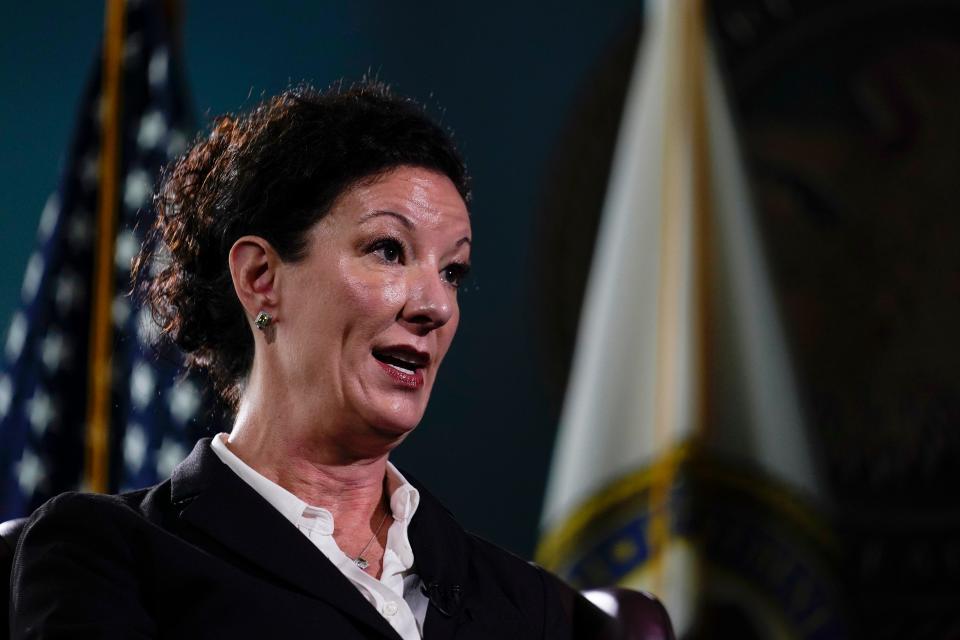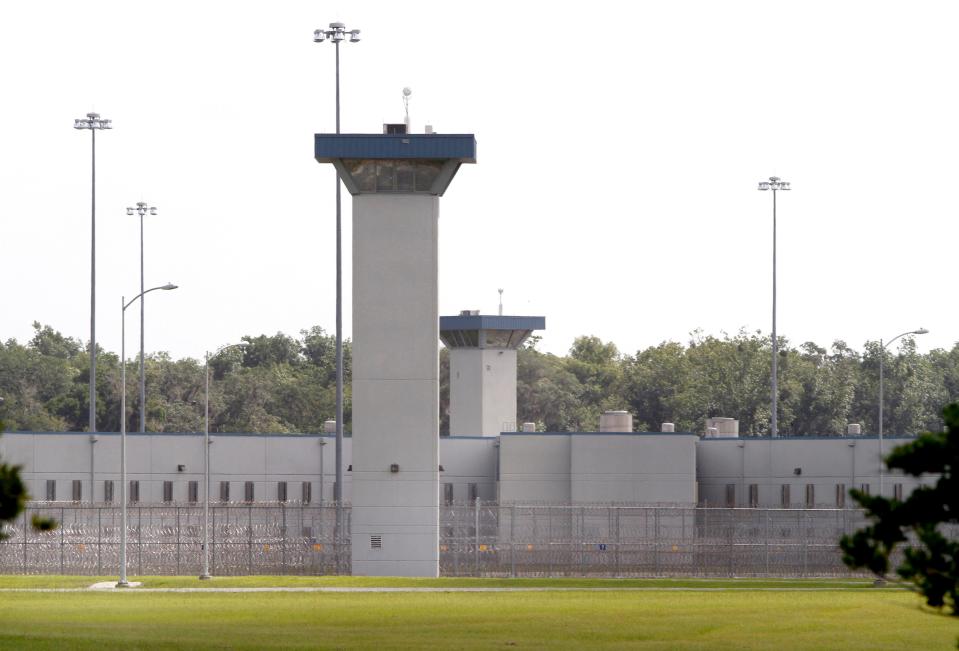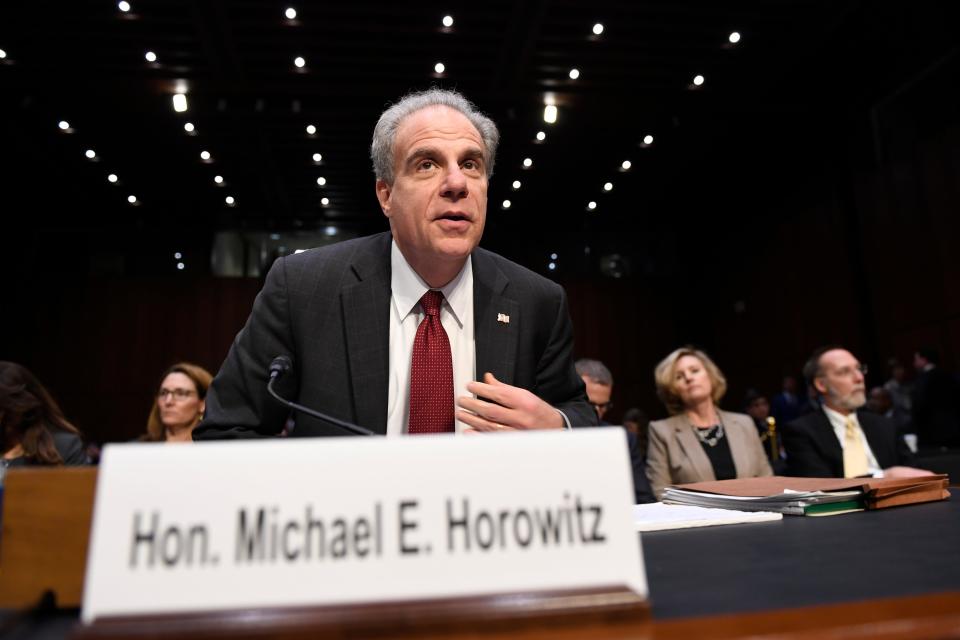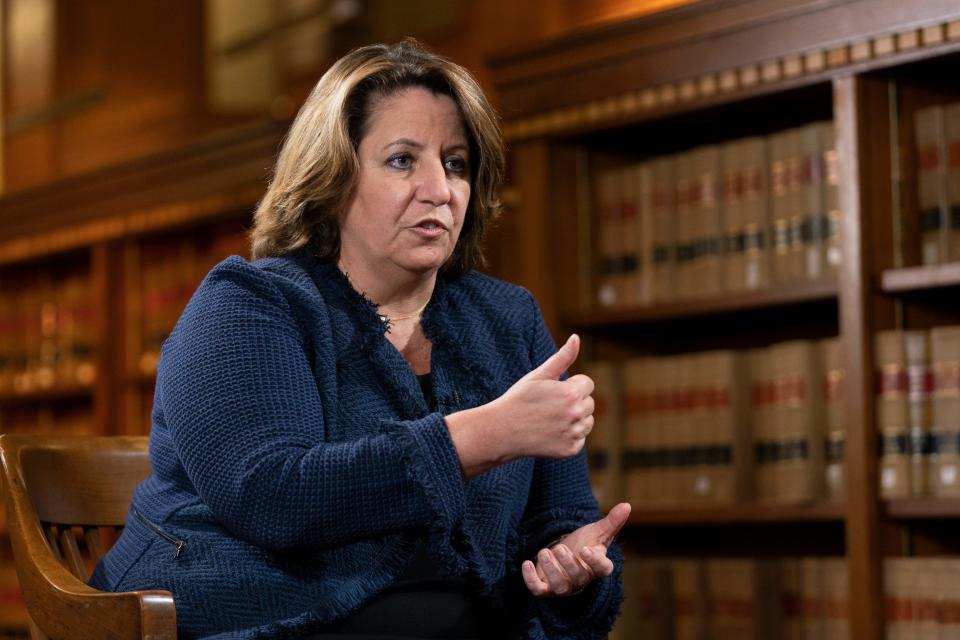Officials considering early release for victims of sex assault in federal prison

WASHINGTON – The victims of rogue federal prison officials convicted of sexually abusing female inmates are being considered for early release as authorities attempt to account for a horrific culture of abuse inside a California prison known as the “rape club.”
Bureau of Prisons Director Colette Peters, in her first interview since last week's conviction of former warden Ray Garcia on eight criminal accounts related to his abuse of inmates at a women’s prison near Oakland, said the relief was under serious review by the Justice Department.
“I am open to this consideration that is a very complex issue, which is why it’s under pretty significant review,” Peters told USA TODAY. “I think we’re concerned about consistency, I think we’re concerned about fairness, and so I think that each case is unique.”
More: DOJ names Oregon official to head sprawling, embattled federal prison system
Today's politics news delivered to you: Sign up for the OnPolitics newsletter

The director's comments come during an extraordinarily fraught time for the federal prisons system which is facing scrutiny on multiple fronts.
A day before Garcia’s conviction, the Justice Department’s inspector general issued a damning account of “incompetence” and indifference involving federal prison officials in Florida and West Virginia that led to the murder of former mob boss James “Whitey” Bulger hours after his transfer to a violence-plagued prison in Hazelton, West Virginia.
More: DOJ watchdog: Prison staff failures preceded inmate murder of Whitey Bulger
Although investigators did not find evidence to support criminal charges in the Bulger case, at least six federal prison staffers could face disciplinary action in connection with the botched transfer of the 89-year-old inmate.
The August appointment of Peters, a former director of the Oregon Department of Corrections and the third official to lead the vast federal system since 2019, only underscores the troubled state of an agency entangled in near-constant turmoil following the suicide of accused sex trafficker Jeffrey Espstein at a federal detention center in Manhattan.
More: Federal prisons director Carvajal announces retirement amid coronavirus deaths, security lapses

While the constellation of troubles predate Peters' short tenure, yet another critical assessment of the bureau's failure to detect and prevent the sexual assault of prisoners across the system was revealed Tuesday by a Senate panel.
Opinion: When a prison is known as the 'rape club,' our justice system has a credibility problem
Among the findings following the panel's eight-month inquiry: Federal prison investigators launched more than 5,000 internal inquiries involving allegations of sexual abuse of inmates between 2012 and 2020, yet the unit handling the internal investigations is plagued by a backlog of about 8,000 inquiries, hundreds of which involve sexual abuse allegations.
Some of the investigations have pending for more than five years, the committee concluded.
"I think it's clear that we have challenges," Peters said. "I think that's why I was selected to lead the bureau to address some of these challenges ... I've been very clear with our employees that those who are engaging in this type of behavior will be fettered out and will be held accountable. So, we have work to do."

Staffing shortages continue to plague the federal prison system
Just four months into her tenure, the new director arguably faces the stiffest administrative challenges of any agency leader in the Justice Department.
Apart from the violence and abuse, the problems include acute staffing shortages and an inmate population ravaged by more than 300 deaths since start of the COVID-19 pandemic.
Of all of the challenges facing the agency, Peters described staffing shortages, which have shadowed the system for years, as the "the number one priority" for the bureau.
Nearly 2,000 line officer positions are vacant out of 14,863 that are authorized, according to the bureau. That number does not include supervisory-level officers.
Prisons have been so short-staffed that officials have long depended on the controversial practice of tapping secretaries, teachers, nurses, kitchen workers and other non-security staffers to patrol cellblocks, solitary confinement units and prison yards, often with little preparation for their new roles.
Known as "augmentation," the practice has been condemned by lawmakers after the scope of its use was revealed in a series of reports by USA TODAY.
"When you look at our group of employees prior to (the coronavirus pandemic), they were exhausted," Peters said. "Then, they've been managing the pandemic for the last three years while the economy has changed and made it difficult to hire across this country in all fields, but particularly difficult in law enforcement...
"We are just having difficulty finding people who are available for employment," Peters said, adding that hiring conditions vary widely in urban and rural areas.
More: Top officials at troubled federal prison system recommended for more than $3M in bonuses
The director said the agency is working with outside contractors to assess staffing needs going forward and what incentives could be implemented to attract qualified candidates. Efforts also are being made on "how to market ourselves differently."
"So, I hope we're able to begin to recruit really the right people who have the right heart and minds ... for this work," she said.
'Culture change is hard'
More recently, however, allegations of misconduct and inaction by existing staffers have cast a harsh spotlight on the bureau.
No two cases appeared to underscore the urgency related to the agency's challenges than last week's convergence of a stinging Justice report on the botched transfer of Bulger and guilty verdicts against the former California warden implicated in the sexual abuse of three inmates.
More: Gangster James 'Whitey' Bulger's life and death defined by brutality
In the Bulger case, the Justice Department's inspector general found that prison staffers were talking so openly about the impending transfer of the gangster and FBI informant that prisoners were "betting money" on how long the 89-year-old former boss of the Winter Hill gang would survive in the same place inhabited by rival organized crime offenders.
Less than 12 hours after his arrival, Bulger's battered body was found in a bunk, rolled up in bed covers.
Peters said bureau officials were still examining the Bulger findings and that no decisions had been made on possible discipline.
"What I can commit to is that we are going to look at this Bulger report very seriously, and that our Office of Internal Affairs will look into individual accountability as well," Peters said.

The verdicts in the Garcia case, meanwhile, delivered a repudiation of the warden's rampant abuse of female inmates who he molested and forced to pose naked in their cells.
Kevin Ring, president of Families Against Mandatory Minimums, has advocated for the early release of the victims, saying in a statement following the conviction that "the brave women who testified against their abusers will never be able to fully heal so long as they remain incarcerated."
"We continue to believe that the government should bring compassionate release motions on behalf of these women and let them go home to heal," Ring said last week. "They were not sentenced to being raped and abused."
The Garcia case has cast a broader spotlight on the sexual abuse of inmates in the bureau's custody. The issue has drawn the attention of top Justice Department officials, including Deputy Attorney General Lisa Monaco, who has urged federal prosecutors to make cases involving the abuse of federal inmates a priority.
Monaco also has detailed a counsel to her staff from the Eastern District of New York, Seth Eichenholtz, to deal exclusively with federal prison reforms.

"I am deeply concerned about the instances of reported and proven misconduct by BOP employees, including egregious instances of sexual misconduct," Monaco wrote in a memo earlier this year to Justice officials.
The Justice Department's inspector general also has expressed serious concerns for how cases of inmate abuse are investigated, citing "a reluctance to rely on inmate testimony in misconduct investigations and disciplinary proceedings, and general practice of avoiding calling inmates as witnesses" in administrative hearings.
The practice, the inspector general concluded, "creates significant risks" for the bureau.
Peters said new directives have been issued to bureau investigators, stressing the importance of inmate testimony while training has been added to the Office of Internal Affairs to assist in responding to "egregious" cases of abuse, similar to the misconduct detailed in the Garcia case.
The director also said an additional 40 positions have been added to internal affairs to to deal with such cases.
"Culture change is hard; culture change takes a lot of work," Peters said. "And when you look at people's inability or fear to come forward, like in the case of our (California) facility. That is substantial.
"I have confidence in the future, but we are certainly starting from a difficult place, as it relates to our investigators," the director said.
This article originally appeared on USA TODAY: Prison director: Officials weigh early release for sex assault victims

